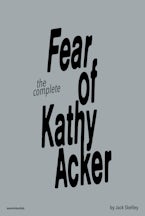This odd, transcendent and triumphant novel completes Howe's series of quasi-autobiographical, radically philosophical fictions begun in 1972.
This odd, transcendent and triumphant novel published in 2000 completes a quasi-autobiographical, radically philosophical series of fictions Howe began with First Marriage, published in 1972. Like Howe, Henny's life spans the tempestuous multi-racial world of hipsters and activists in working-class Boston during the 60s and its subsequent fall-out. On the verge of religious conversion, Henny, the book's narrator, locks her husband McCool in a closet so that she might talk better to God. Then she proceeds to make peace with the dead by telling their stories. Lewis, Henny's true love, is a wheelchair-bound black activist and political journalist whose working-class mother is jailed when the group's cache of explosives is found in her home. Then there's their wealthy friend Libby, who crosses the globe in search of enlightenment and spiritual peace. Guiding these characters on their journey are figures as divergent as Nietzsche and Bambi, Marx and St. John of the Cross. As Christopher Martin writes in Rain Taxi, Henny's function as a narrator is to hoist the entire structure of the novel onto her brittle, uneven shoulders and deliver all the embarrassing facts directly to us, her reader/God—only then do we realize the full breadth and beauty of the narrative Howe has surreptitiously constructed all along.












